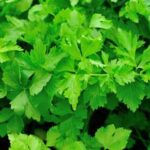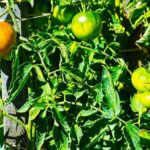How pollinators help vegetable gardens grow is a crucial aspect of successful gardening. The role of pollinators such as bees, butterflies, birds, and other insects cannot be overstated when it comes to the growth and productivity of vegetable gardens. Understanding the importance of these pollinators is essential for any gardener looking to maximize their yields and contribute to the overall health of their garden ecosystem.
Pollinators play a vital role in the process of pollination, facilitating the transfer of pollen between flowers and ultimately contributing to the growth of vegetables. While bees are widely recognized for their role as pollinators, other creatures such as butterflies and birds also play significant roles in this process. Exploring how these various pollinators contribute to the growth of vegetable gardens sheds light on the intricate web of relationships within garden ecosystems.
In this article, we will delve into the specific roles that bees, butterflies, birds, and other insects play in pollination processes within vegetable gardens. We will also explore the impact of these pollinators on overall vegetable yields and provide practical tips for creating a pollinator-friendly gardening environment. Additionally, we will address the potentially alarming consequences of pollinator decline on vegetable production, emphasizing the need for conservation efforts to protect and preserve these essential contributors to sustainable vegetable gardening.
The Role of Bees as Pollinators
Bees play a crucial role in the pollination of vegetables, contributing significantly to the growth and yield of vegetable gardens. As they visit flowers in search of nectar and pollen, bees inadvertently transfer pollen from one flower to another, facilitating the fertilization process. This transfer of pollen is essential for the formation of fruits and seeds in many vegetable plants, making bees a vital part of the gardening ecosystem.
Efficient Pollination Process
The unique method through which bees collect pollen makes them remarkably efficient pollinators. As they forage for nectar, bees brush against the reproductive parts of flowers, causing pollen to stick to their bodies. When they move on to visit other flowers, some of this pollen is transferred, allowing for cross-pollination that leads to healthy and abundant vegetable harvests.
Impact on Vegetable Yields
The contribution of bees to vegetable gardens cannot be overstated when considering their impact on crop yields. Studies have shown that vegetables such as cucumbers, squash, and tomatoes benefit greatly from bee pollination, with increased fruit set and larger produce as a result. The presence of abundant bee populations in a garden can lead to more bountiful harvests, making it clear that supporting bee populations is essential for successful vegetable cultivation.
Overall, understanding the valuable role that bees play as pollinators in vegetable gardens underscores the significance of creating a welcoming environment for them within gardening spaces. By providing a range of flowering plants for sustenance and minimizing pesticide use that may harm bee populations, gardeners can help ensure the continued success and abundance of their vegetable crops.
Other Essential Pollinators
Butterflies as Pollinators
Butterflies play a significant role in pollinating vegetable gardens. As they flit from flower to flower in search of nectar, they inadvertently transfer pollen from one plant to another, facilitating the reproduction process. While not as efficient as bees, butterflies are still important pollinators for many vegetable crops. To attract butterflies to your garden, consider planting nectar-rich flowers such as butterfly bush, milkweed, and coneflowers.
Birds as Pollinators
Certain bird species also contribute to the pollination of vegetable gardens. Hummingbirds, for example, are known to visit and pollinate flowers while feeding on nectar. Their long bills and tongues allow them to reach deep into tubular flowers, making them effective pollinators for specific plant species. To attract hummingbirds and other bird pollinators to your garden, install feeders with sugar water or plant trumpet-shaped flowers such as columbine and bee balm.
Other Insects as Pollinators
In addition to bees and butterflies, various other insects play a crucial role in pollinating vegetable gardens. Beetles, flies, and moths are among the many insect species that aid in the transfer of pollen from one plant to another.
While these insects may not be as well-known for their pollination capabilities as bees and butterflies, their contributions should not be overlooked. To support these lesser-known pollinators in your vegetable garden, diversify your plantings to include a variety of flower shapes and sizes that appeal to different types of insects.
Understanding the roles of butterflies, birds, and other insects in pollination is essential for cultivating a thriving vegetable garden. By creating a habitat that welcomes a diverse array of pollinators, gardeners can enhance the productivity of their crops while promoting biodiversity within their local ecosystem.
The Process of Pollination
Pollination is a crucial process for the growth and development of vegetable gardens. It involves the transfer of pollen from the male reproductive organs of a flower to the female reproductive organs, leading to the fertilization and production of seeds. This process is facilitated by various pollinators, including bees, butterflies, birds, and other insects. Understanding how pollinators transfer pollen is essential for appreciating their role in vegetable gardening.
The process of pollination can occur through different methods, depending on the type of pollinator involved. Bees are one of the most effective pollinators for vegetable gardens. As they collect nectar from flowers, pollen attaches to their bodies and is transferred as they move from one flower to another. This movement allows for cross-pollination, where pollen from one plant is transferred to another plant of the same species, leading to genetic diversity and enhanced fruit production.
In addition to bees, butterflies are also important pollinators in vegetable gardens. They have specialized mouthparts that allow them to extract nectar from flowers while inadvertently transferring pollen. Birds and other insects play a similar role in facilitating pollination by carrying pollen grains between plants as they feed on nectar or collect resources for their nests. Understanding how these different pollinators transfer pollen emphasizes their significance in supporting the growth and productivity of vegetable gardens.
- The process of pollination:
- Cross-pollination vs self-pollination
- Role of specific pollinators (bees, butterflies, birds, insects)
- Methods of pollen transfer by different pollinators
Impact of Pollinators on Vegetable Yields
The presence of pollinators in vegetable gardens plays a crucial role in ensuring the overall productivity of the garden. Pollination, the process by which pollen is transferred from the male to the female reproductive organs of plants, is essential for the production of fruits and vegetables. Without effective pollination, many crops would not be able to produce fruit or seed. This makes pollinators indispensable to vegetable gardens as they facilitate the growth and development of a wide variety of crops.
One significant impact of pollinators on vegetable yields is their contribution to crop diversity. Different types of pollinators are attracted to different flowers, and this diversity helps ensure a broad range of plants are effectively cross-pollinated. As a result, vegetable gardens with a rich population of pollinators are likely to yield a diverse array of fruits and vegetables, contributing to a more varied and nutritious harvest.
Furthermore, research has shown that the presence of pollinators can lead to an increase in both the size and quality of fruits and vegetables. This is due to more efficient and thorough pollination, resulting in larger, healthier crops. Additionally, higher yields are often observed in vegetable gardens with abundant pollinator populations compared to those without adequate pollination assistance.
| Impact | Vegetable Yields |
|---|---|
| Crop Diversity | Promotes a broad range of cross-pollinated plants |
| Fruit and Vegetable Size/Quality | Increase in size and improvement in overall quality |
| Yield Quantity | Higher yields compared to gardens without adequate pollination |
Pollinator-Friendly Gardening Tips
When it comes to vegetable gardening, attracting and supporting pollinators is essential for ensuring the successful growth of your crops. By implementing pollinator-friendly gardening strategies, you can create an environment that encourages the presence of bees, butterflies, birds, and other insects that play a crucial role in pollination.
Here are some effective tips for creating a pollinator-friendly garden:
- Plant a diverse range of flowering plants: By including a variety of flowers that bloom at different times throughout the growing season, you can provide continuous nectar and pollen sources for pollinators.
- Provide nesting sites for pollinators: Incorporate features such as bee houses, birdhouses, or butterfly boxes to offer shelter and nesting opportunities for these beneficial insects and animals.
- Avoid using pesticides: Minimize the use of chemical pesticides in your garden to protect pollinators from potential harm. Instead, opt for natural pest control methods that are less harmful to beneficial insects.
- Create habitat diversity: Integrate elements such as water sources, rock piles, and areas of undisturbed vegetation to enhance the overall diversity of your garden environment.
By following these pollinator-friendly gardening tips, you can actively contribute to the conservation and support of vital pollinator populations while enjoying the benefits of improved vegetable yields in your garden.
The Relationship Between Pollinator Decline and Vegetable Production
Pollinators play a crucial role in the production of vegetables, as they are responsible for transferring pollen from one flower to another, which leads to fertilization and ultimately the growth of fruits and seeds. However, there is growing concern about the decline in pollinator populations and its potential consequences for vegetable production. With less pollinators available to facilitate the process of pollination, vegetable gardens may experience reduced yields and overall productivity.
One significant consequence of pollinator decline is decreased fruit and vegetable production. Without adequate pollination, many vegetable crops such as tomatoes, cucumbers, and squash would not be able to develop properly. This could result in smaller harvests and lower quality produce, ultimately impacting the supply of fresh vegetables in markets and stores.
Another potential consequence of pollinator loss is an increase in production costs for vegetable growers. In the absence of natural pollinators like bees and butterflies, farmers may need to resort to manual methods of pollination such as hand-pollinating each individual flower. This can be a time-consuming and labor-intensive process, adding extra expenses for growers and possibly leading to higher prices for consumers.
| Consequence | Potential Impact |
|---|---|
| Decreased fruit and vegetable production | Smaller harvests and lower quality produce; impact on supply in markets |
| Increase in production costs | Labor-intensive process; higher prices for consumers |
Importance of Conservation Efforts
In conclusion, it is evident that pollinators play a crucial role in the success and productivity of vegetable gardens. Bees, butterflies, birds, and other insects all contribute to the process of pollination, which directly impacts the growth and yield of vegetables. As such, it is essential for gardeners to understand the significance of conservation efforts aimed at protecting and preserving pollinator populations.
The decline of pollinators poses a significant threat to vegetable production, as it can lead to reduced yields and lower-quality crops. This highlights the urgent need for gardeners to take proactive steps in creating pollinator-friendly environments within their gardens. By planting native flowering plants, minimizing pesticide use, and providing suitable nesting sites, gardeners can contribute to the conservation of pollinator populations.
Furthermore, it is important for individuals and communities to advocate for broader conservation efforts that address factors contributing to pollinator decline on a larger scale. Supporting initiatives aimed at habitat preservation, promoting biodiversity, and raising awareness about the importance of pollinators are vital components of creating sustainable vegetable gardening practices. Ultimately, by prioritizing the protection of pollinators, gardeners can ensure the long-term health and abundance of their vegetable crops while contributing to overall environmental sustainability.
Frequently Asked Questions
How Do Pollinators Help Vegetables?
Pollinators such as bees, butterflies, and birds play a crucial role in helping vegetables by transferring pollen from one flower to another, which is essential for the plants to produce fruits and seeds. This process is necessary for the reproduction of many vegetable plants, without which they wouldn’t be able to produce crops.
What Are the Benefits of Pollinators in Garden?
The benefits of pollinators in the garden are numerous. Beyond their role in helping to produce vegetables, pollinators also contribute to the overall health and biodiversity of the garden ecosystem. They help promote the growth of vibrant flowers, fruits, and vegetables by ensuring that plants are able to reproduce and thrive.
How Do Pollinators Help Plants Grow?
Pollinators help plants grow by facilitating the reproductive process through their activity of carrying pollen from one plant to another. When plants are successfully pollinated, they are better able to produce healthy fruits and seeds.
This not only contributes to the growth and success of individual plants but also supports the larger ecosystem by providing food sources for animals and humans alike.

If you’re looking to get into vegetable gardening, or are just looking for some tips on how to make your current garden better, then you’ve come to the right place! My name is Ethel and I have been gardening for years. In this blog, I’m going to share with you some of my best tips on how to create a successful vegetable garden.





